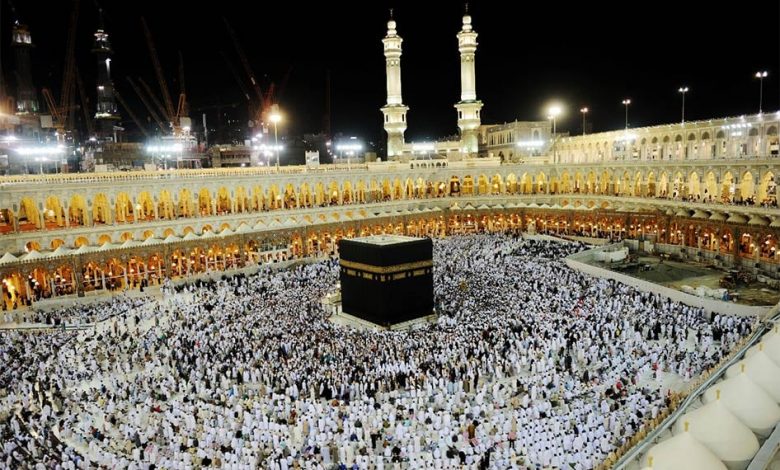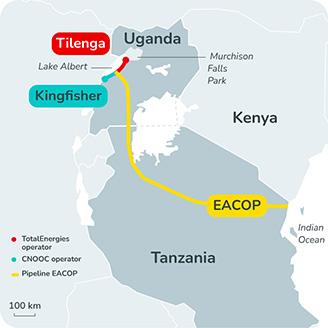Inside Mecca and Medina gates: Understanding the ban on non-Muslim visitors
This restriction, deeply ingrained in Islamic tradition, is primarily attributed to religious significance and security concerns.

In recent years, the question of why non-Muslims are prohibited from entering the holy city of Mecca has stirred debate and curiosity among many.
This restriction, deeply ingrained in Islamic tradition, is primarily attributed to religious significance and security concerns.
According to Islamic law, only Muslims are allowed to enter the city of Mecca and perform the Hajj pilgrimage. This injunction is based on several key Islamic sources, including the Quran and Hadith.
The Quran states in Surah Al-Tawbah (9:28-29): “O you who have believed; indeed, the polytheists are unclean. So, let them not approach al-Masjid al-Haram after this, their [final] year.” Additionally, numerous Hadith narrations, such as those found in Sahih Bukhari and Sahih Muslim, emphasize the sanctity of Mecca and the exclusion of non-Muslims from its sacred precincts.
According to Islamic Landmarks an organization that brings together places of historical Islamic interest from around the world, Mecca and Medina are considered the holiest cities in Islam and are revered by Muslims worldwide. Mecca is home to the Kaaba, the first house of worship dedicated to the one true God, Allah. It is also the site of the annual Hajj pilgrimage, which is one of the five pillars of Islam and mandatory for every able-bodied Muslim who can afford it.
Furthermore, the Prophet Muhammad (Peace Be Upon Him) declared that Mecca and Medina are sacred lands that are not to be polluted by non-Muslims. He said, “No unbeliever may enter Mecca. No one may circumambulate the Kaaba naked or perform the pilgrimage naked” (Sahih Muslim, 1355).
Islamic Landmark added that this restriction on non-Muslims entering Mecca has been in place for centuries and is strictly enforced by the Saudi Arabian government. Non-Muslims who attempt to enter Mecca can face severe consequences, including imprisonment and deportation.
“The rationale behind this ban is to preserve the sanctity and purity of Mecca as a holy site for Muslims. Allowing non-Muslims to enter Makkah could potentially lead to the desecration of these sacred sites and compromise their spiritual significance for Muslims,” it added.
How Do They Check if You Are Muslim in Mecca?
When it comes to entering the holy city of Mecca, Islamic Landmark noted that the Saudi government takes strict measures to ensure that only Muslims are allowed in. One of the ways they verify the religion of the visitors is by checking their passports.
The passport will be checked at the arrival registration counter at airport when arriving in Saudi Arabia, and if the passport has any visa stamps from Israel, it will be deemed invalid. Additionally, non-Muslims are not allowed to apply for the special Hajj or Umrah visas, which are required to enter Makkah and Medina.
Furthermore, there are checkpoints and barriers set up on the roads leading to Mecca to ensure that only Muslims enter the city. At these checkpoints, visitors will be asked to show their Hajj or Umrah visas as well as their ID cards, which will indicate their religion.
Additionally, there are officers who will be observing the visitors’ behaviour and dress to ensure that they are adhering to Islamic norms and customs.
If you are a non-Muslim tourist visiting Saudi Arabia, you will not be allowed to enter the holy city of Makkah. However, you can still visit other parts of the country, such as Madina, Riyadh or Jeddah, and experience the culture and hospitality of the Saudi people.
Can one convert and enter Mecca or Medina?
Islamic Landmarks narrates that yes one can convert and enter the two holy cities, however, it is important to note that the Saudi Arabian government has implemented strict rules and regulations for Hajj and Umrah pilgrims, and you must follow these rules to perform the pilgrimage.
“There is no specific age limit for Hajj, but the pilgrim must be physically and financially capable of performing the journey. However, due to safety concerns, the Saudi government has set the minimum age for performing Hajj at 12 years. Elderly people and those with underlying health conditions are advised to consult their doctors before embarking on the Hajj journey,” added the organization.
What Happens if a Non-Muslim Enters Mecca?
If a Non-Muslim is found entering Mecca, they will be arrested and deported back to their country. The Saudi government takes the ban on non-Muslims entering Mecca seriously, and violators can face severe punishment, including imprisonment and fines.
Are there incidents when Non-Muslims Entered Mecca?
There have been instances in the past where non-Muslims have entered Mecca. Islamic Landmarks explained that in 1979, a group of armed militants led by Juhayman al-Otaybi took control of the Grand Mosque in Mecca.
The militants were from Saudi Arabia and Yemen, and they believed that the ruling Saudi monarchy had become corrupt and unIslamic.
The Saudi government eventually regained control of the mosque after a two-week siege, during which many people were killed or injured. This incident highlighted the potential security risks that non-Muslims could pose if they were allowed to enter Mecca.
In 2002, an American Jew and TV journalist in Israel named Gil Tamary secretly entered Mecca to record footage for a travelogue.
Despite the strict enforcement of the ban on non-Muslims in Mecca, Tamary managed to gain entry along with only 17 other non-Muslims known to have done so in recent decades.
The incident caused an uproar among Muslims, Israelis, and Westerners alike, as they feared it would increase hostility. The Saudi government pressed criminal charges against Tamary and his Saudi driver.
Islam Is Not the Only Religion That Bans/Restricts Access to Holy Sites
It is important to note that Islam is not the only religion that restricts access to certain holy sites. Many religions around the world have similar practices, and it is often done to preserve the sanctity and religious significance of these places.
For example, in Hinduism, non-Hindus are not allowed to enter certain temples.
In addition, there are also many secular restrictions on access to certain areas around the world, such as military zones, national parks, and private property.
It’s essential to note that Saudi Arabia, as the custodian of the holy sites of Islam, enforces these regulations as part of its commitment to upholding Islamic principles and ensuring the safety of pilgrims. As such, non-Muslims seeking to visit Mecca are encouraged to respect these religious and security protocols while exploring alternative destinations in the region that are open to individuals of all faiths.







